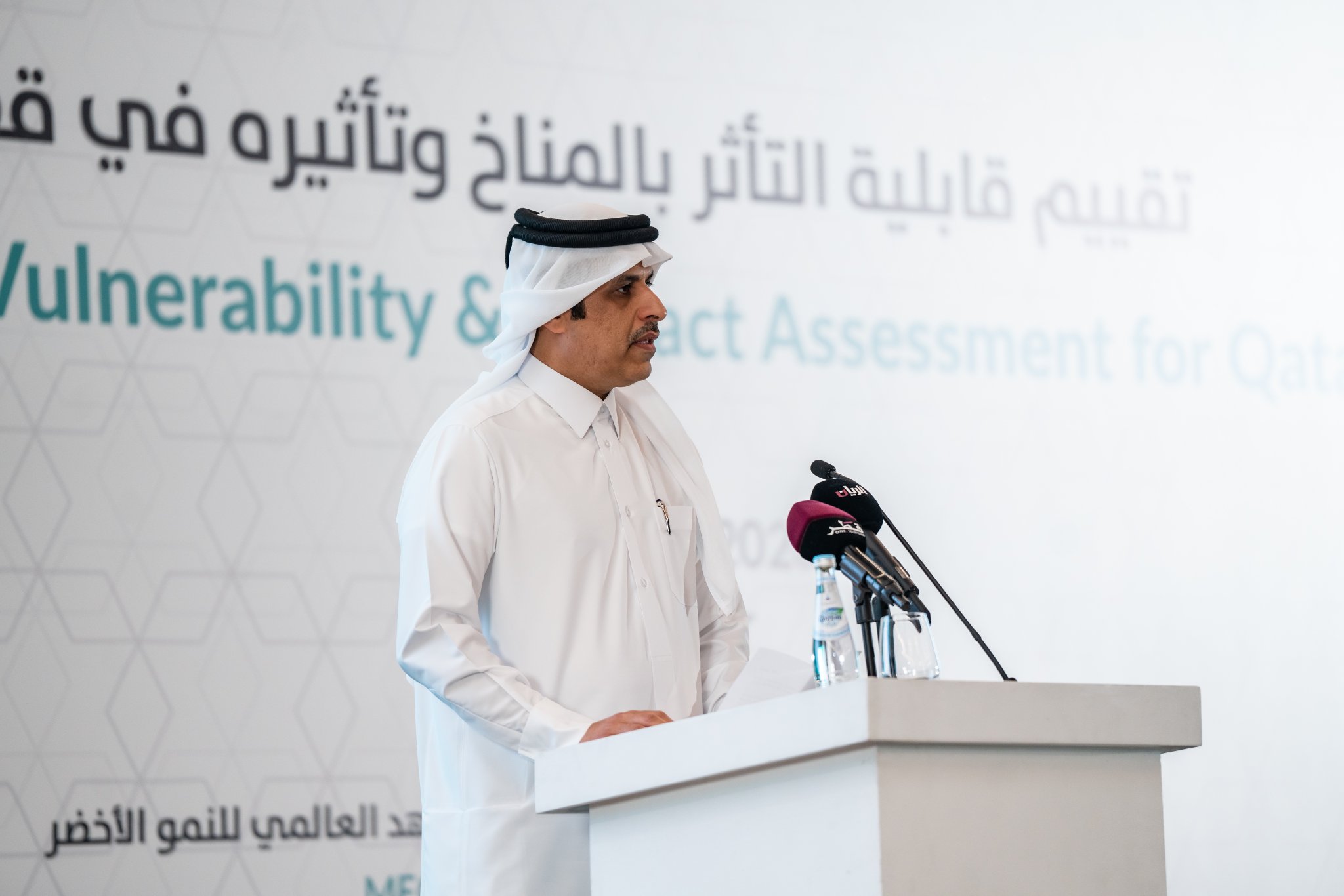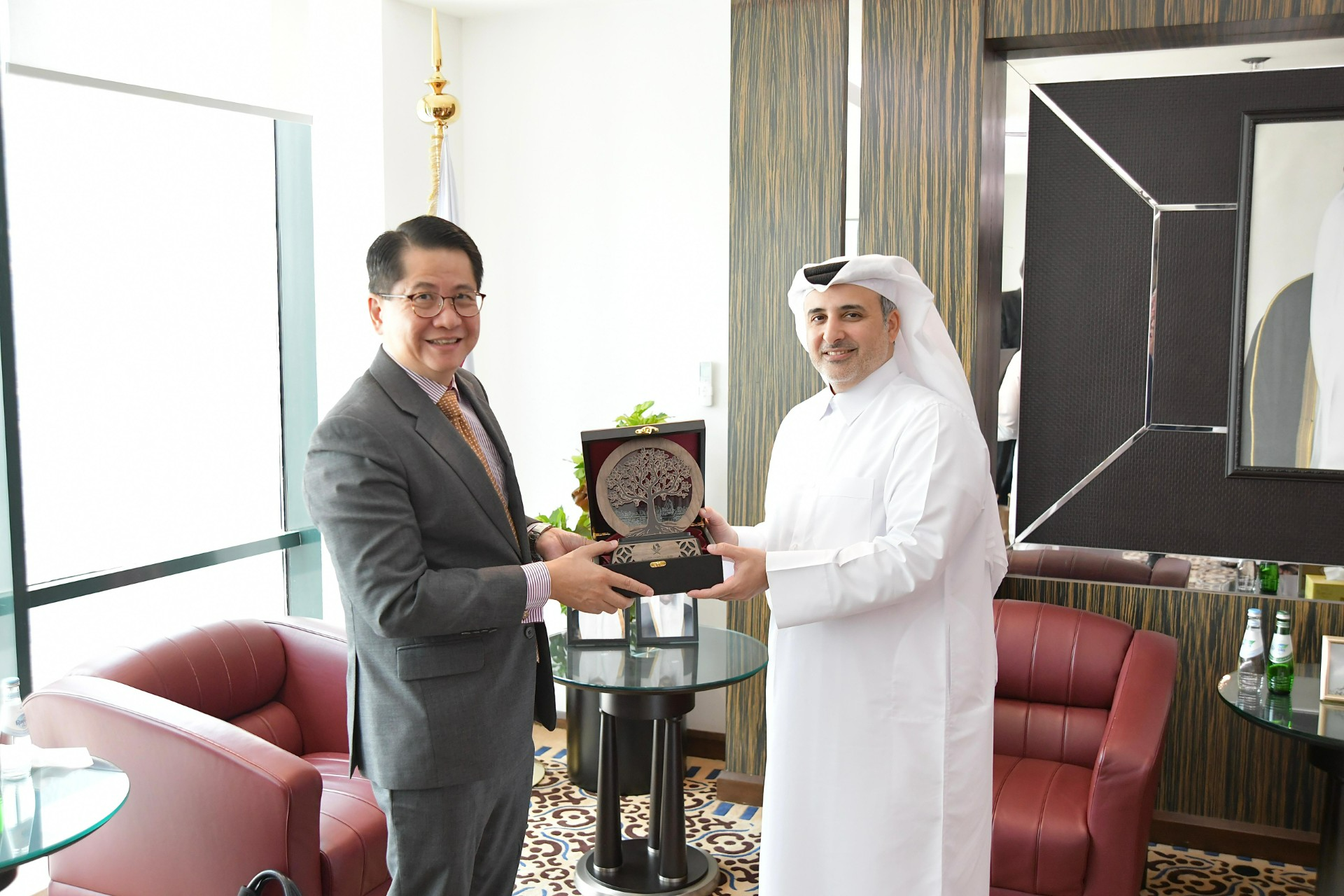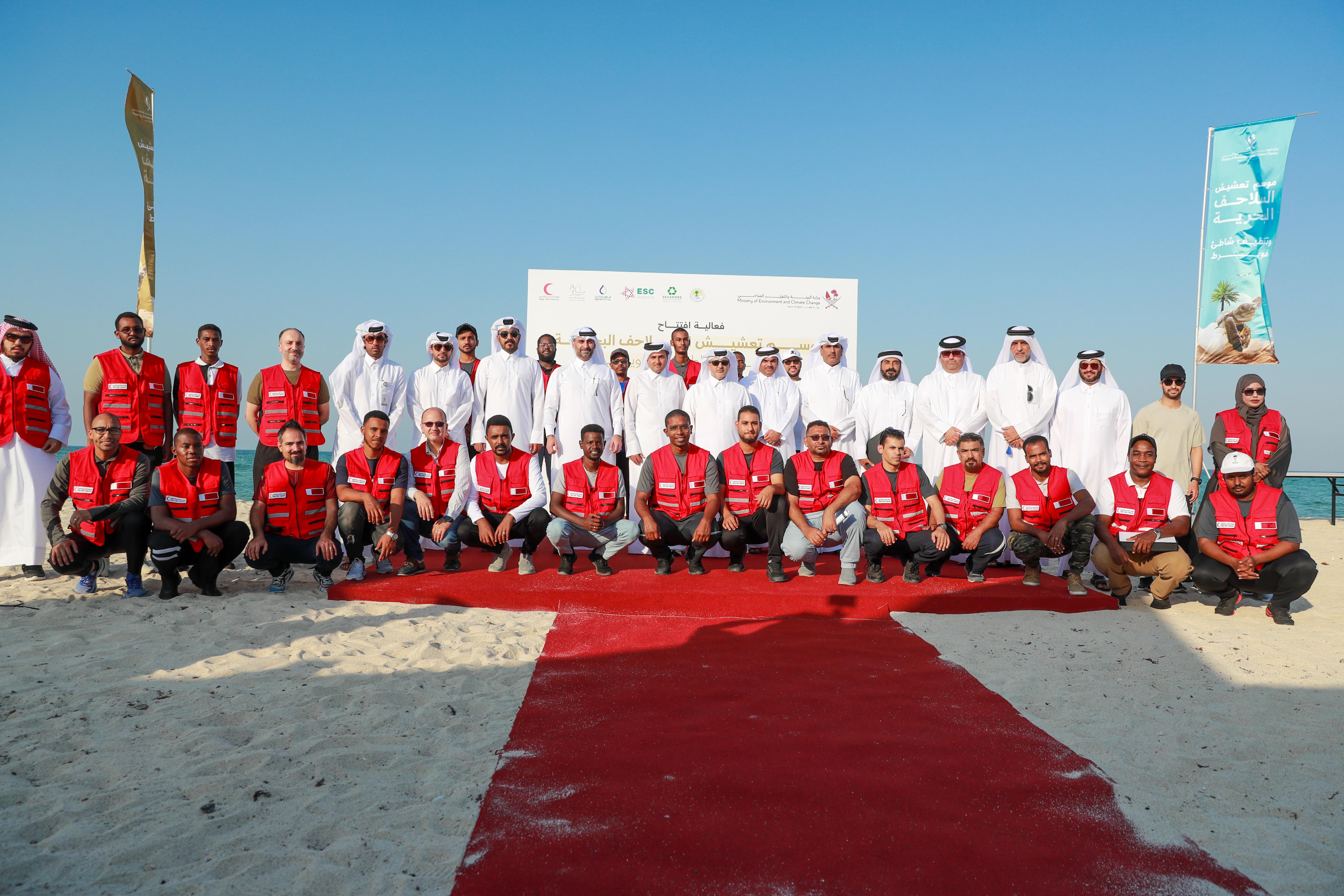
The Ministry of Environment and Climate Change organized a workshop to discuss the impacts of climate change in the state of Qatar
The Ministry of Environment and Climate Change, in partnership with the Global Green Growth Institute (GGGI), organized a workshop titled ‘Assessment of Climate Vulnerability and Impact in Qatar’ this morning. The workshop aimed to discuss the preliminary results of the climate vulnerability assessment for six sectors in the country. The workshop will continue for two days, on May 30th and 31st, at the Montreal Hotel.
The workshop included informative presentations delivered by a team from the Global Green Growth Institute (GGGI) and external experts from “Ricardo” company, specialized in climate vulnerability and adaptation. The workshop aimed to share the preliminary results of the climate vulnerability assessment and its impact on six key sectors. This workshop is part of the Green Growth Institute’s ability-building initiative, within the framework of the collaborative program between the Ministry of Environment and Climate Change and the institute, focusing on climate change and green growth.
The workshop was attended by Eng. Ahmed Mohammed Al-Sada, the Assistant Undersecretary for Environmental Affairs, along with many ministry officials. Additionally, over 120 officials from relevant government ministries, private sector entities, as well as a significant number of academics and civil society organizations.
In his opening speech at the workshop, Eng. Ahmed Mohammed Al-Sada, the Assistant Undersecretary for Environmental Affairs at the Ministry of Environment and Climate Change, emphasized that Qatar has taken ambitious measures over the past year to achieve its National Vision 2030 in environmental protection, promoting green growth, and mitigating the impacts of climate change. Through the development of a national strategy for environment and climate change, as well as the preparation of a clear national action plan for climate change in Qatar, which will span the next ten years.
Eng. Ahmed Al-Sada also highlighted that the national action plan includes a roadmap through which Qatar fulfills its international commitments to mitigate the impacts of climate change, particularly in reducing greenhouse gas emissions. He pointed out that over 300 measures have been identified to effectively address or anticipate the impacts of climate change, encompassing various sectors in the country such as the economic sector, infrastructure, healthcare, food security, water, biodiversity, and other relevant sectors.
The Assistant Undersecretary for Environmental Affairs emphasized the importance of cooperation among stakeholders and national and international organizations to achieve these objectives. In this context, he highlighted the collaboration between the Ministry of Environment and Climate Change (MECC) and the Global Green Growth Institute (GGGI) in implementing the National Adaptation Planning (NAP) project. The project aims to enhance Qatar’s NAP process by identifying and addressing medium and long-term adaptation priorities in response to climate change.
He outlined that the workshop is one of the initiatives of this project which aims to conduct an evidence-based participatory national assessment where the participating experts embark on identifying and arranging the priorities of the predicted impacts of climate change and the necessary adaptation measures to address them.
For his part, head of the GGGI’s program in Qatar Chiden Balmes gave a detailed overview of the project and the key concepts to enhance people’s understanding and awareness on adaptation, pointing out that the GGGI works to give impetus to the national planning for adaptation process in Qatar through identifying and addressing its medium and long-term priorities to adapt to climate change.
Qatar really faces some challenges concerning the effects related to climate, Balmes pointed out, adding that such challenges can be transformed into opportunities to promote flexibility through identifying adaptation’s measures and implementing them in Qatar.
Head of the GGGI’s program in Qatar called on stakeholders to be part of the national planning process to adaptation through sharing their knowledge, expertise, and comments through this workshop.
For his part, Assistant Director of the Climate Change Department at the MECC Mahmoud Al Marwani said the workshop aims to draw a map of the most significant challenges of climate change in the State of Qatar and establish data on the most affected sectors by these changes and their effects, pointing out that based on these data a plan will be laid out to address these challenges and adapt to climate change effects accordingly.
He outlined that the workshop witnesses a huge turnout from some governmental entities and local partners, adding that an opinion poll will be conducted through a questionnaire with the engagement of all attendees to nurture ideas and information about identifying the nature of climate changes for each sector, as well as methods of adapting to them.
Ms. Sultana Abdullah, an Environmental Specialist in the Climate Change Department, mentioned that the Ministry of Environment and Climate Change is making rapid progress in its efforts to mitigate the impact of climate change in Qatar and work towards sustainability. She emphasized that this workshop serves as a capacity-building and priority-setting platform in collaboration with the Global Green Growth Institute (GGGI) and aims to assess the impacts of climate change in Qatar.
She further explained that the workshop is part of the Climate National Adaptation Planning project, which is one of the initiatives under the cooperation program between the Ministry of Environment and the Global Green Growth Institute. Its objective is to share the preliminary results of the climate vulnerability assessment with the participants. She highlighted that these results cover sectors such as energy, water, infrastructure, biodiversity, agriculture, and public health.
The workshop will also contribute to familiarizing stakeholders with the Climate National Adaptation Planning project, discussing the data collection process, and engaging stakeholders in the discussion. This includes exploring the potential benefits of the project for broader development efforts in Qatar. Additionally, the workshop will involve discussions on the scope of proposed adaptation measures to address specific impacts using a set of assessment criteria.
Engineer Baligh Awad Al-Yafei, a chemical engineer at the Ministry of Environment and Climate Affairs, affirmed that the workshop will contribute to gaining a clear understanding of the significant impacts of climate change on Qatar, including temperature rise, sea-level rise, and increased desertification. He emphasized the importance of the Climate National Adaptation Planning project, which is a collaboration between the Ministry of Environment and the Global Green Growth Institute and spans a duration of two to three years.
The workshop also reviews the efforts of certain sectors in the country to confront the impacts of climate change, aiming to benefit from them and unify visions and efforts among all sectors. This contributes to the development of an integrated plan that encompasses the state’s sectors and operates with a unified vision.


